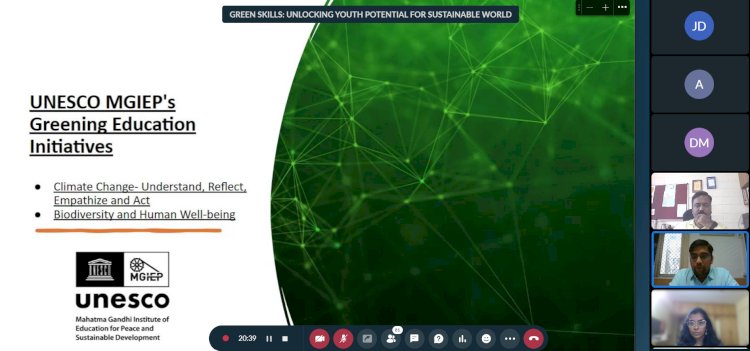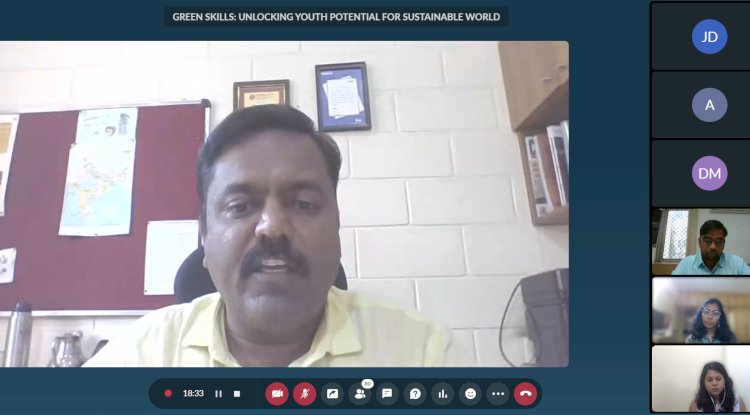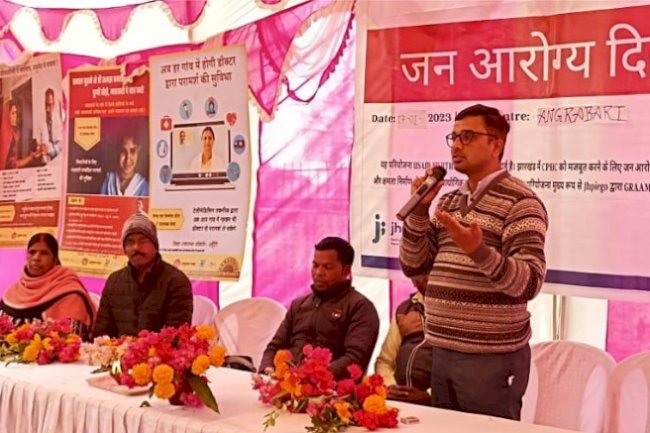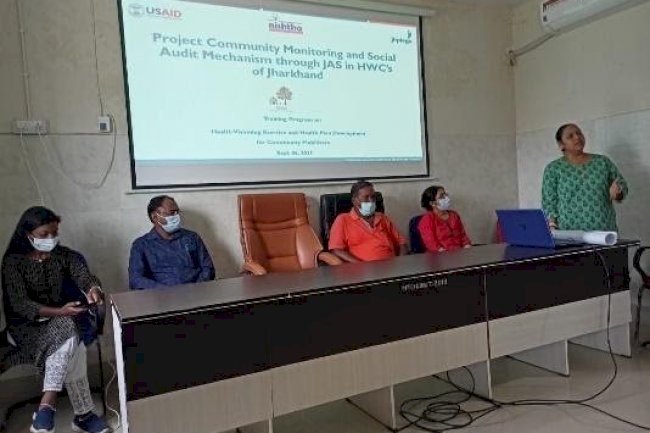Green Skills Webinar: Unlocking Youth Potential for Sustainable World
Green Skills Webinar: Unlocking Youth Potential for Sustainable World

The terms ‘sustainability and sustainable development’ have seamlessly woven themselves into the fabric of our daily interactions. At the heart of these discussions lies a crucial focus on the pivotal role that the youth of today play in propelling the agenda of sustainable development forward. Their innovative solutions and out-of-the-box approaches stand as beacons of hope in the face of global challenges.
However, to channelize the immense potential residing within the youth, there is an imperative need for upskilling. Recognizing this, initiatives across the globe have endeavoured to equip the younger generation with skills aligned with current global trends. In this light, the emphasis on developing green skills among the youth has become paramount.
GRAAM in association with MinerVa Centre for Leadership (RV University), conducted a webinar on the 06th of October on the topic Green Skills: Unlocking Youth Potential for a Sustainable Future. This Webinar hosted international speakers from UNESCO MGIEP and UNICEF, along with speakers from RV University.

Dr. Anurag Deep from UNESCO MGIEP passionately highlighted the importance of imparting green skills to the youth. He unveiled the myriad open-source online certifications available, providing a gateway for the youth to enhance their understanding and proficiency in green skills. Ms. Vishista Sam echoed the sentiment, delving into the economic significance of green skills. Her insights illuminated the transformative potential for a developing country like India to carve a significant niche in the 8 trillion-dollar economy of green skills.
Dr. Soundarya Iyer underscored the need for inclusive practices, emphasizing the importance of integrating individuals from marginalized backgrounds into the burgeoning economy of green skills. Her remarks resonated with a call for broadening the horizons of inclusivity and ensuring that the benefits of green skills reach every corner of society.
The sectoral transition from brown economy to green economy has been happening for the past few years. Major economies of the world have identified this opportunity and are actively working to tap into its potential. The market size of the green economy is amounting to 8 trillion, in which more than 30 million employment opportunities are present. The economic advantages of upskilling in green skills are not only profound but also instrumental in shaping a sustainable and prosperous future.
As the world grapples with environmental challenges, the integration of green skills into various sectors proves to be a strategic move with multifaceted benefits. In fact, three major avenues where the economic significance of green skills becomes evident are in long-term cost reduction in resource management wherein Industries that prioritize green skills benefit from long-term cost reductions in resource management. Sustainable practices, such as recycling and efficient use of resources, minimize dependence on finite resources and reduce the costs associated with raw material extraction. This creates a more resilient and economically viable production ecosystem.
Secondly, upskilling in green skills would ensure a competitive advantage for the stakeholders involved. In fact, as the international community increasingly prioritizes sustainability, countries with a skilled workforce in green technologies can play a pivotal role in shaping global standards, influencing trade policies, and participating in collaborative international projects. Upskilling in green skills would also enable Cost Savings through Efficiency. In fact, adopting green skills often goes hand in hand with increased efficiency and resource optimization. Industries that prioritize sustainability tend to streamline processes, reduce waste, and minimize energy consumption. These efficiencies translate into significant cost savings, enhancing the economic viability of businesses and contributing to their long-term success.
In conclusion, the benefits of upskilling in green skills not only promise prosperity but also offer a sustainable path forward. However, this is not just a call for contemplation; it's a call for action. Let us actively engage in upskilling initiatives, support inclusivity, and champion sustainable practices. By nurturing a generation equipped with green skills, we not only secure a prosperous future but also become stewards of a planet that thrives in harmony with its inhabitants. The time to act is now, and the power to shape a sustainable tomorrow lies in our collective commitment to empowering the youth with the skills needed for a greener, more resilient world.
What's Your Reaction?




















